Dune Review: Part One of Denis Villeneuve’s Epic
Dune (or Dune Part One as the opening credits assure us) is a towering cinematic achievement, with stunning visuals, confident direction, impressive art and sound design, a score that blasts you through the theater (or living room) wall, and performances that pull directly from Frank Herbert’s epic novel.
However, Dune is also half a movie. And therein lies the problem.
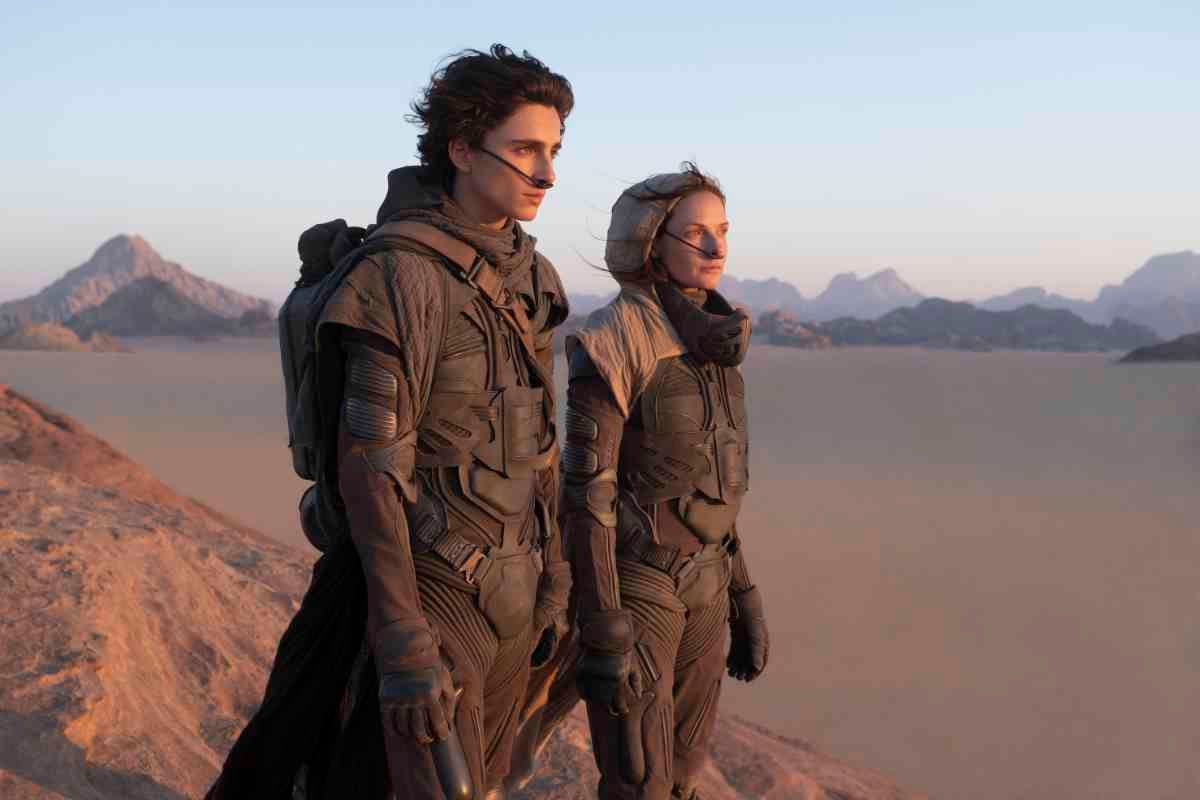
I have a long history with Dune, although I have not read all the novels in the series. I read Dune In high school and have re-read it a couple of times since then, but I stopped reading the series after God Emperor of Dune, where the saga gets decidedly strange.
Dune wasn’t exactly written in a vacuum; there are a ton of historical and artistic influences on that novel, from Lawrence of Arabia and the historical figure of T.E. Lawrence to the conflicts that drove the Middle East and continue to this day. Herbert took every influence he had and created this epic story, so dense that it has its own dictionary in the back, and created one of the most definitive works of science fiction. Like Tolkien’s The Lord of the Rings did for high fantasy, Dune has influenced science fiction for many years and will for many years to come.

Adapting this material for film and television has been difficult. Alexandro Jodorowsky famously tried to adapt it in the 1970s but failed, and many of the creative team went from that project to help make Ridley Scott’s Alien. (There’s a great documentary on this called Jodorowsky’s Dune, a movie I highly recommend for anyone fascinated with Jodorowsky, Dune, or science fiction films of the 1970s.) David Lynch, not known at the time for epic science fiction, tackled it in 1984, and debate still rages on whether he succeeded or not. (My take: it’s a very interesting Lynch movie, but I’m not sure it quite works as a Dune movie.)
There have been television shows as well, with varying levels of success, but the consensus is that Dune could probably never be adapted to the degree that would make its fans universally happy. It has a wide cast of characters, each given their own focus, a created history so deep that some of the novel’s chapters devote as much time to worldbuilding as it does moving forward with the story, and more symbolism and allegory than the Bible at times.
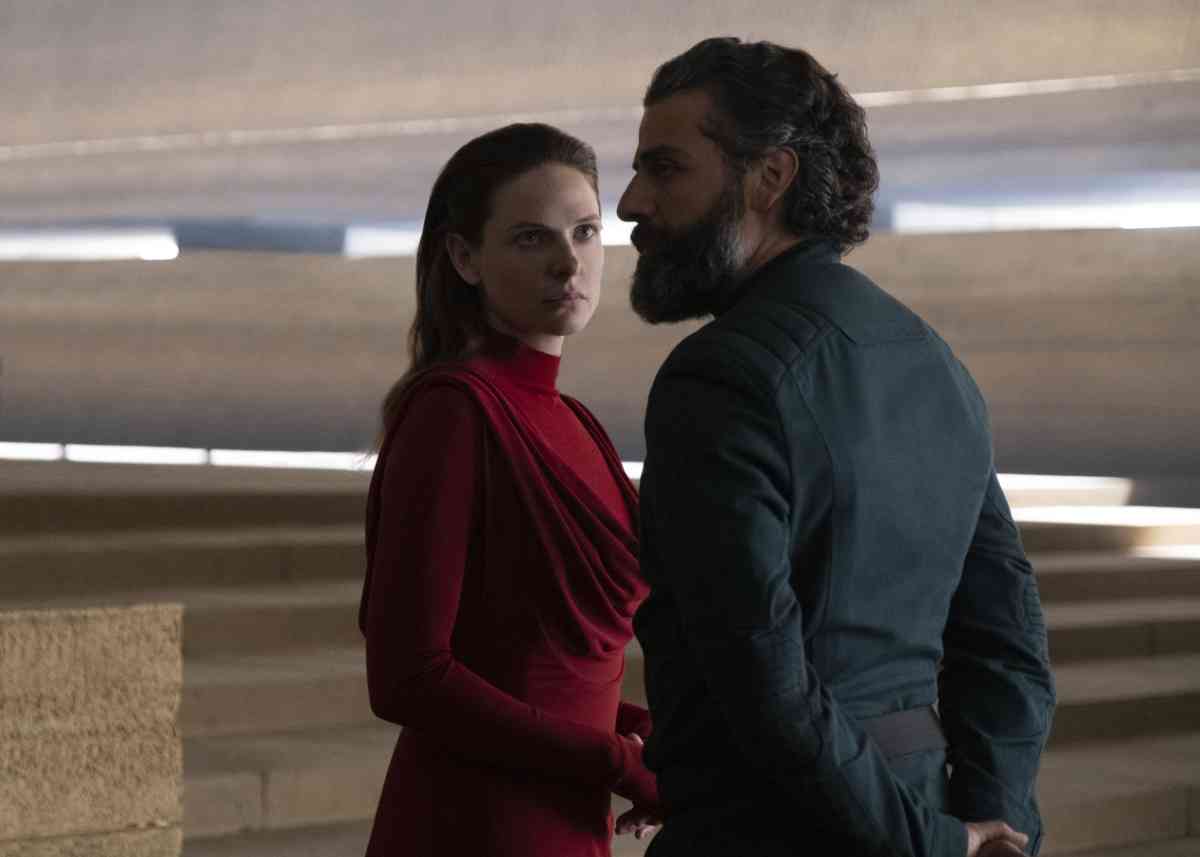
It’s not unadaptable; it’s just very difficult to squeeze into a two-hour running time, not without losing something in the process. David Lynch’s Dune tries very hard to stuff it all in, and the result is a disjointed, weird movie that does have its admirers but would probably not be considered very loyal to the source material.
When director Denis Villeneuve announced Dune as his next project after Arrival and Blade Runner 2049, it seemed a natural progression for a filmmaker unafraid to tell challenging stories in the genre and willing to tackle some of the genre’s sacred cows. You don’t make a sequel to Blade Runner without ruffling a few feathers, but Villeneuve made a film that I could say may be even better than the original, juggernaut of science fiction that it is. Villeneuve seems well-fitted to tackle Dune.
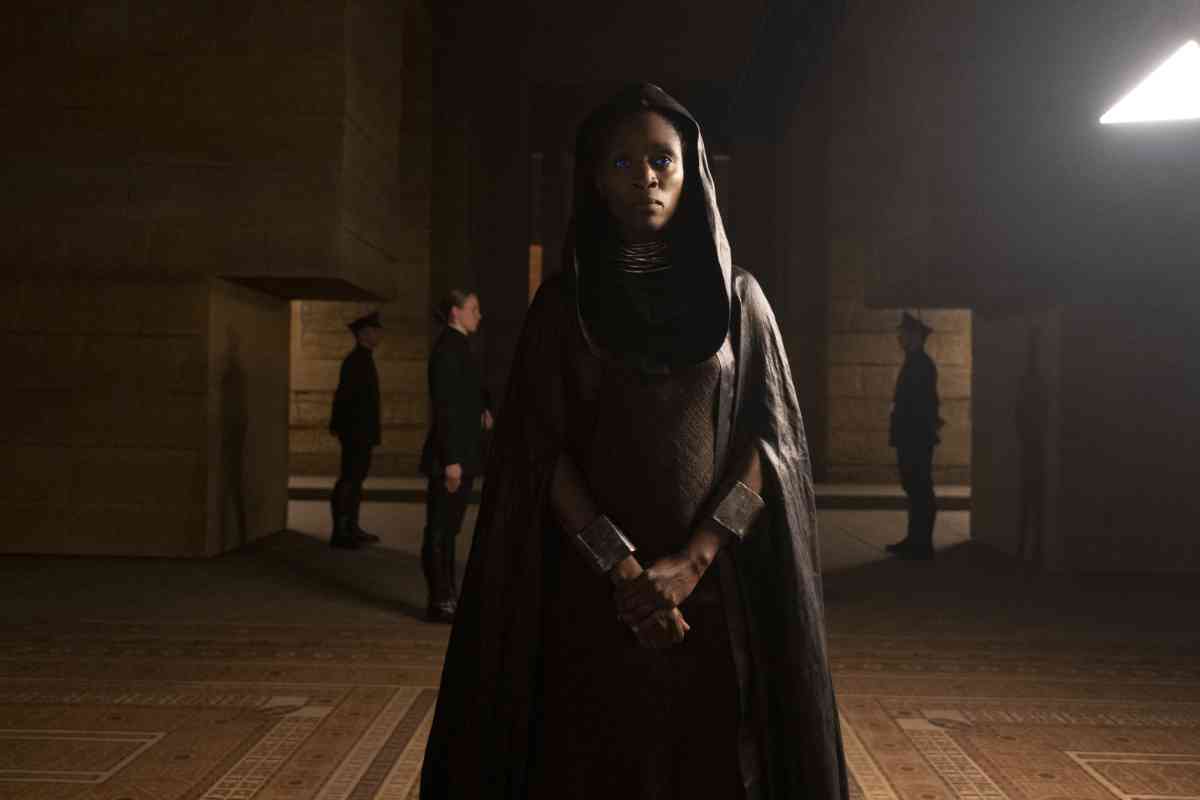
So, is he? The answer is a resounding yes, but that’s part of the problem: this story isn’t finished. It’s no fault of Villeneuve’s; had Warner Brothers given the green light, I’m sure Villeneuve would have happily committed to another three years of Dune, as would the cast and crew. But Warner Brothers played it safe, and in doing so, severely undercuts the film’s achievements.
There’s no getting around this – this is half a movie. It’s not a graceful cut, either – Dune Part One ends just when Paul Atreides (Timothée Chalamet) is getting interesting. As the story dictates, Paul, at this point in the narrative, isn’t a character of choices. He’s a character who is swept up in the universal events of the story, but he doesn’t have real agency yet.
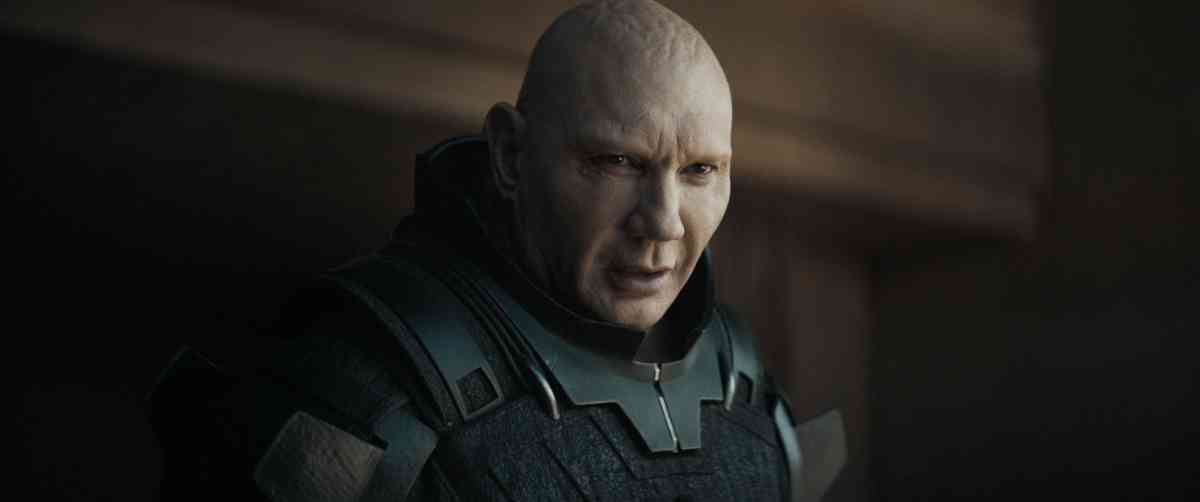
As the son of Duke Leto Atreides (Oscar Isaac) and Lady Jessica (Rebecca Ferguson), Paul is born into royalty but is not fully aware of the galactic chess game that is being played with his family and his family’s mortal enemies the Harkonnens, led by Baron Vladimir (Stellan Skarsgård) by the ruling Emperor, who has dictated that House Atreides take custodial control of Arrakis from the Harkonnens. Arrakis is the only planet in the known universe that has mélange, the Spice, which grants long life and makes it possible for interstellar space travel.
The Atreides are walking into a trap, and even the efforts of Duncan Idaho (Jason Momoa) and Gurney Halleck (Josh Brolin) are not enough to save them from their destiny. But Paul’s coming has been prophesied – by the Bene Gesserit, of whom Paul’s mother is a courtesan, and by the Fremen, the native tribe of Arrakis. Is Paul the savior of Dune? Is he merely a pawn or something more?
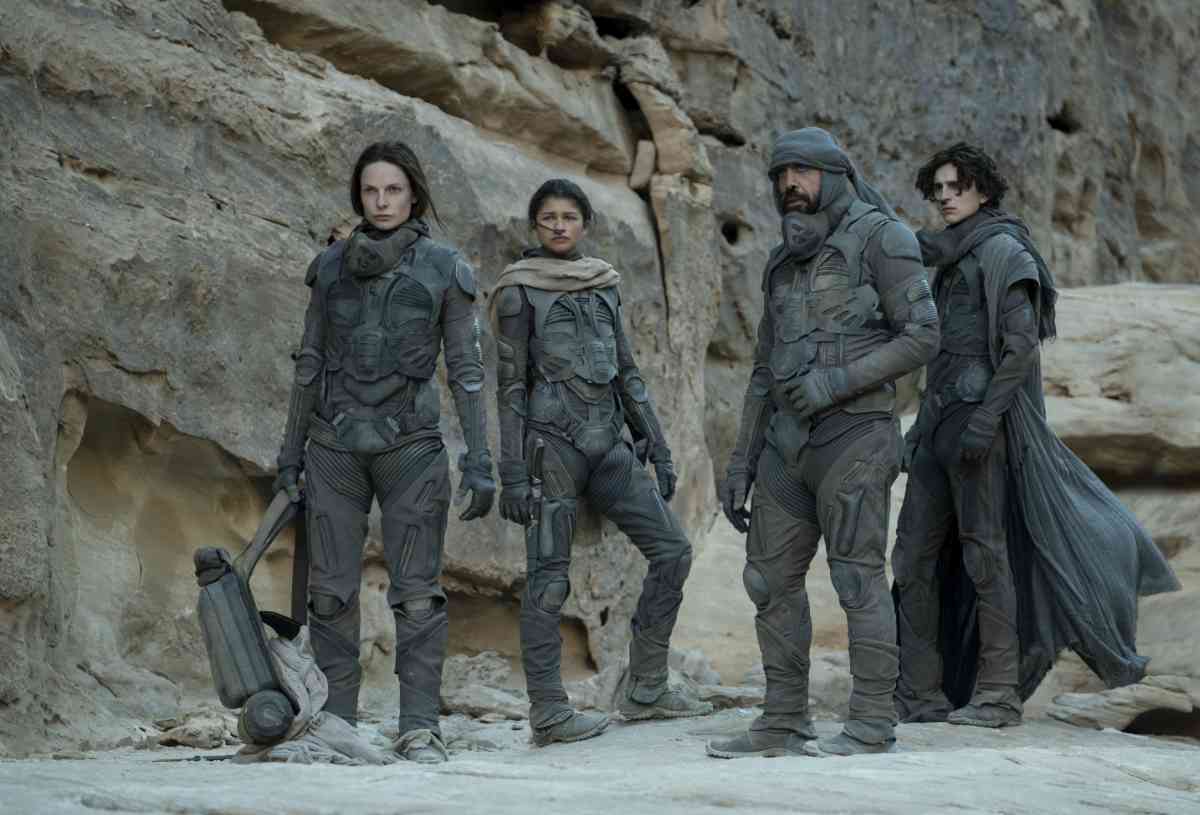
Dune is going to get many comparisons to Peter Jackson’s The Lord of the Rings trilogy – both are ambitious, epic adaptations of difficult material. But The Fellowship of the Ring, although part of a trilogy (and that trilogy was dictated by the publisher, not J.R.R. Tolkien himself), was crafted by the filmmakers to be a complete part of a whole. All the Lord of the Rings films are. Although part of a larger narrative, those films have a natural progression in storytelling. They build, they have climaxes, and each film has individuality.
Dune doesn’t have that, not this version. The film doesn’t have a natural climax; indeed, Dune doesn’t have a climax at all, not in the scope of the story. What we get is marvelous, but if you’re hoping for a satisfying conclusion, you won’t get it. Dune feels like it’s just getting started right when the credits roll.
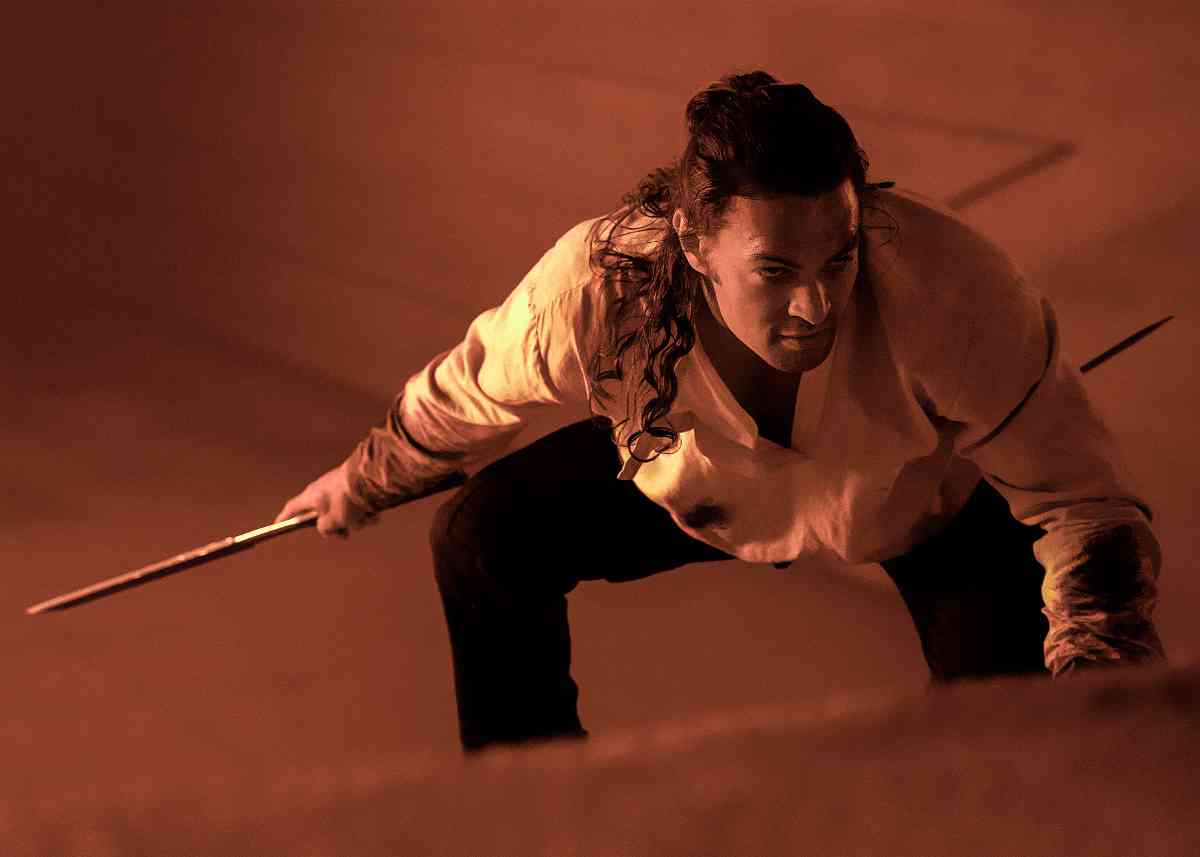
This is clearly the studio’s fault – this is an expensive adventure, and while I can understand the reluctance of Warner Brothers to move forward at this time, they could not have predicted the pandemic and this film’s odd release. But the results are the same – an unfinished story. I hope that we get a sequel. I’m certain we will, and that all the talk of box office success determining whether a second film gets made is just that, but the quality of any second film will be greatly dependent on how this first film does.
I’m confident that Denis Villeneuve has an idea of the scale he’s working with, especially since the first film has some important chunks of the novel missing. It’s not a perfect adaptation of the novel; the Bene Gesserit, for example, are hugely important and are sidelined more than I would like, but a second film could raise their level of importance to the story and give the audience, especially those unfamiliar with the novel, much-needed context. If Villeneuve is allowed to finish what he started, this could very well be the definitive version of Dune. Even Lynch’s Dune was able to dive into the more esoteric aspects of the novel, and I have the feeling that Villeneuve will be able to as well if he is provided time and money.
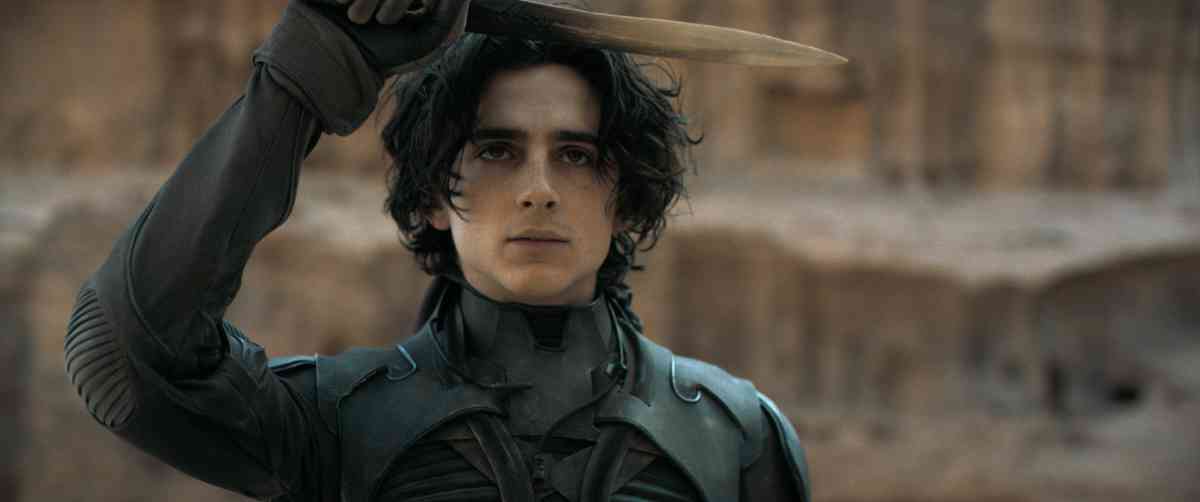
Dune Part One is worth seeing in a theater. It’s an experience of sight and sound that we haven’t seen since, well, The Lord of the Rings. If you feel safe in doing so, you should see it in the best theater you can find. If not, HBO Max is an option, but you’re going to want to turn off the cell phones and the lights and at least get yourself a decent sound bar. This isn’t a movie that is served well by distractions. Hell, I wouldn’t even go to the bathroom if I could help it, even at this film’s running time.
Dune Part One is a fully immersive film, building universes and transporting audiences as very few movies do. In the meantime, films like this do not come around often. Best see it in the grandest way possible, if you are able. And, maybe when I see the rest of it, I can even give it that coveted 10 out of 10 score. But not yet.
DUNE REVIEW SCORE: WE’LL SEE! OUT OF 10
Dune will open in theaters on the evening of Thursday, October 21, and will be available on HBO Max the same day starting at 6 p.m. ET / 3 p.m. PT.

